Yog For Specially Abled
Yoga offers a wealth of benefits for specially-abled individuals, encompassing various aspects of their well-being. In the realm of speech therapy, Yoga aids significantly through controlled and regulated breathing. It strengthens respiratory muscles, enhances breath support, and improves vocal control, complementing speech therapy efforts. Beyond physical benefits, Yoga releases deep-seated tensions, bolstering communication skills and confidence for those facing speech-related challenges.
Pranayama, a Yoga practice focusing on controlled breathing, significantly enhances sleep quality, especially for individuals with disabilities. It improves stamina, balance, and strength, facilitating better circulation and relaxation conducive to improved sleep patterns.
Finally, our Yoga practices aim to enhance self-dependence among specially-abled individuals. Our well-trained teachers empower them by improving physical strength, flexibility, and balance, leading to greater autonomy. Yoga instills a positive mindset, encouraging individuals to embrace their capabilities and increase their self-dependence through a combination of physical exercises, breathing, and meditation techniques.
Speech therapy
Yoga offers significant benefits for individuals undergoing speech therapy, especially through practices involving controlled and regulated breathing. This aspect of Yoga is particularly effective in strengthening respiratory muscles, a crucial factor in speech production and clarity. Improved breath support, gained through consistent Yoga practice, directly translates to better control over vocalization, which is an essential component of speech therapy.
Moreover, Yoga’s role in enhancing vocal control is not just limited to physical aspects; it extends to the emotional realm as well. Regular Yoga practice helps release deep-seated physical and emotional tensions. These tensions, often unnoticed, can significantly impact speech and communication abilities. By alleviating these stresses, Yoga complements traditional speech therapy efforts, leading to more effective outcomes.
The holistic approach of Yoga, encompassing both physical and emotional wellness, plays a pivotal role in enhancing communication skills. Individuals facing speech-related challenges often encounter barriers to confidence and self-expression. Yoga addresses these issues by fostering a sense of inner calm and self-awareness. This, in turn, boosts confidence, allowing
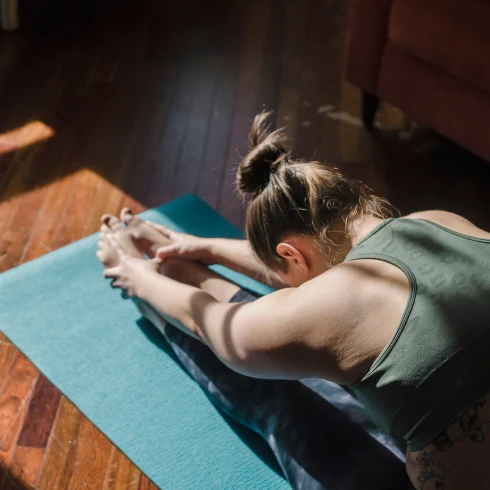
individuals to communicate more freely and effectively. Through its multifaceted impact on respiratory strength, emotional release, and vocal control, Yoga emerges as a valuable adjunct to conventional speech therapy methods. It not only aids in overcoming the physical challenges associated with speech but also enriches the therapy experience by enhancing overall communication skills and self-assurance in individuals facing speech-related challenges.
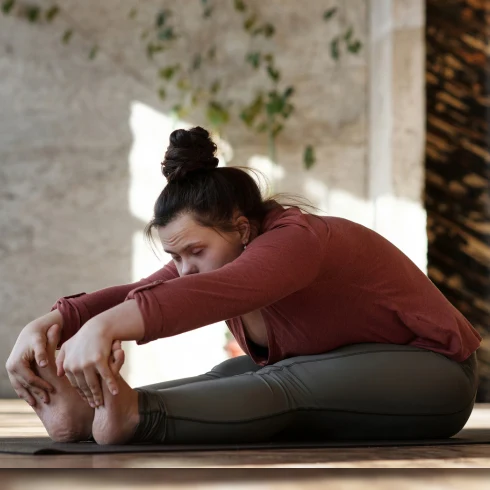
Motor skill development
Yoga holds a vital role in helping motor skill development, especially for specially-abled individuals. These classes focus on improving the intricate coordination of mind, body, and emotions, which is fundamental to enhancing motor skills. Through various Yoga practices, participants learn to reduce distractions and sharpen their focus, a critical aspect of mastering motor coordination.
The impact of Yoga on motor skill development extends to daily living activities. By improving coordination and focus, Yoga helps specially-abled individuals perform everyday tasks with greater ease, thereby promoting independence and self-reliance. This aspect of Yoga is incredibly important, as it directly contributes to the quality of life and autonomy of these individuals.
Beyond the physical benefits, Yoga also plays a significant role in emotional and social well-being. The practice of Yoga helps in curbing emotional upsets and mitigating negative tendencies. This emotional balance achieved through Yoga is crucial for maintaining healthy social relationships. The calming effect of Yoga fosters a sense of inner peace, which reflects in the way individuals interact with others, enhancing their social interactions and
relationships. Overall, Yoga classes for specially-abled individuals are not just about improving physical abilities but also the right approach to well-being. By addressing the connection between the mind, body, and emotions, Yoga facilitates comprehensive development. This includes not only the enhancement of motor skills but also the promotion of emotional stability and social well-being, contributing to a more balanced and fulfilling life experience.
Improving body alignment
Our classes for specially-abled individuals enhance body alignment through modified poses, developing flexibility, and range of motion. Tailored to diverse physical conditions, our classes strengthen core muscles, improve balance, and promote stability.
For body alignment, our specialized Yoga classes offer modified poses to develop flexibility and range of motion, tailored to various physical conditions. These classes strengthen core muscles, improve balance, and promote stability, building a strong mind-body connection. Breath awareness and meditation techniques are integrated for stress reduction, ensuring Yoga remains accessible and empowering despite physical challenges.
Building the mind-body connection, Yoga instills breath awareness and meditation for stress reduction. Despite physical challenges, our teachers ensure that Yoga remains an accessible and empowering activity, showcasing that physical challenges don’t equate to physical inactivity.
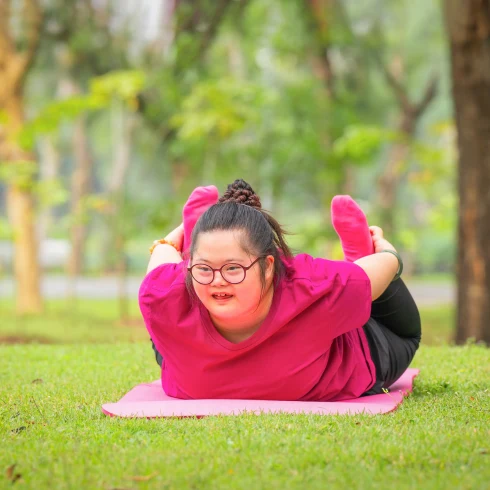
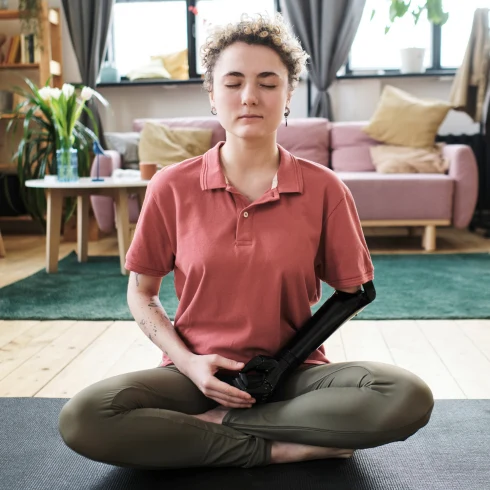
Breathwork
Breathwork in Yoga is beneficial for those with limitations or who are in wheelchairs or chairs. Flexible poses allow for practice in a seated position, meeting a variety of needs.
Breathwork in Yoga is particularly beneficial for individuals with mobility limitations, offering practices suitable for seated positions. This unlocks untapped potential and improves overall psychological and physiological well-being. The inclusive approach helps develop flexibility, resilience, and a sense of empowerment.
Yoga unlocks untapped potential and improves psychological and physiological well-being beyond its physical postures. They can develop flexibility, resilience, and a general sense of empowerment with breath work in Yoga practice under inclusive practice with teachers.
Sleep improvement
Yoga, particularly through the practice of Pranayama, plays a transformative role in enhancing sleep quality for individuals with disabilities. Pranayama, a Yoga practice centered on controlled and regulated breathing, offers a spectrum of benefits that extend far beyond the Yoga mat. It significantly improves stamina, balance, and strength, which are crucial for maintaining physical health. Moreover, Pranayama aids in facilitating the better circulation of vital energy throughout the body. This improved circulation is a key factor in enhancing the quality of sleep, as it helps in calming the mind and preparing the body for rest.
The practice of Pranayama involves deep, intentional breaths that have a profound impact on both the physical and emotional states of an individual. These breaths help release tension accumulated in the body and mind, paving the way for relaxation. This relaxation is not just superficial; it reaches deep into the nervous system, promoting a state that is highly conducive to improved sleep patterns. The effect of Pranayama on emotional well-being is especially beneficial for individuals with disabilities, who may experience heightened levels of stress and anxiety.
Pranayama lays a foundation for better sleep, which is essential for overall
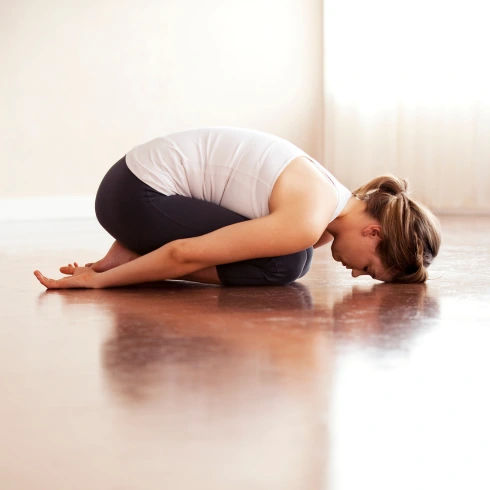
well-being. The regular practice of Pranayama can lead to long-term improvements in sleep quality, making it a crucial component of a holistic approach to health and wellness for individuals with disabilities.
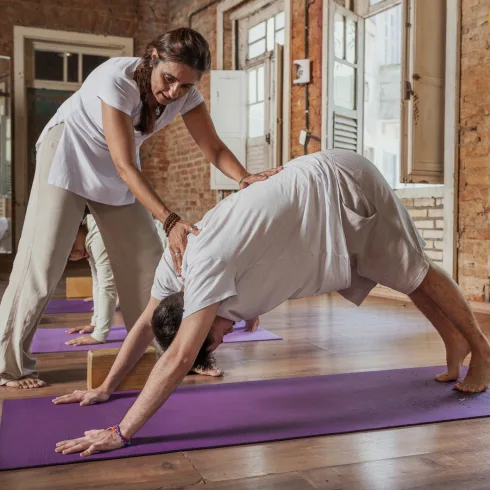
Improvement in self-dependence
Improving self-dependence, our experienced teachers focus on empowering individuals with special challenges through Yoga. The practice of Yoga is instrumental in developing physical attributes such as strength, flexibility, and balance. These improvements are crucial as they directly enhance the individual’s ability to perform daily activities independently, fostering a sense of autonomy.
Moreover, the adoption of Yoga goes beyond physical benefits. It plays a significant role in nurturing a sense of achievement and self-efficacy. As individuals engage in Yoga and observe their progress, they experience a boost in confidence, realizing their potential and capabilities.
Additionally, Yoga incorporates breathing and meditation techniques that are essential for cultivating emotional resilience. These practices are effective in mitigating feelings of stress and anxiety, common challenges faced by individuals with special needs. By learning to control their breathing and calm their minds, they gain emotional strength, which is a key component of self-dependence.
Yoga not only aids in physical and emotional development but also fosters a positive mindset. This positive approach is integral in encouraging
individuals to embrace their unique abilities and work towards increasing their independence. The holistic nature of Yoga, encompassing physical, emotional, and mental aspects, makes it a powerful tool in aiding individuals to progress in their journey towards self-dependence, encouraging them to view their challenges as opportunities for growth and development.


